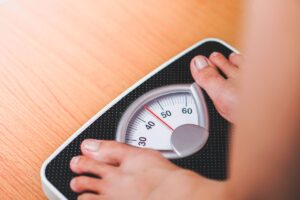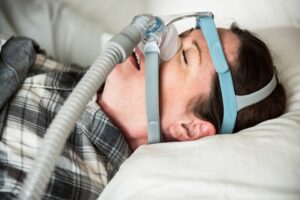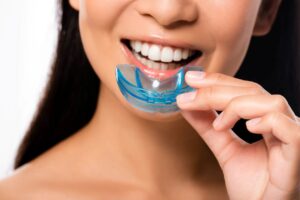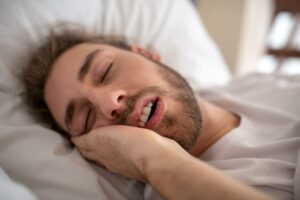Sleep apnea is often seen as a men’s health issue — but the truth is, millions of women also suffer from sleep apnea, and many go undiagnosed for years. Why? Because women tend to experience different symptoms than men, and traditional screening often overlooks them.
This article explores how sleep apnea shows up in women, why it’s often missed, and what to do if you suspect you’re affected.
Sleep Apnea Doesn’t Look the Same in Women
While snoring and gasping for air are the hallmark symptoms in men, women are more likely to report:
- Insomnia or restless sleep
- Chronic fatigue or low energy
- Morning headaches
- Mood swings or depression
- Anxiety or brain fog
- Frequent nighttime awakenings
- Dry mouth or sore throat in the morning
Because these symptoms can be vague or mistaken for other conditions (like stress, menopause, or hormonal changes), many women never receive a proper diagnosis.
Hormones Play a Big Role
Estrogen and progesterone have a protective effect on the airway. As hormone levels decline during perimenopause or menopause, the risk of developing obstructive sleep apnea (OSA) increases.
In fact:
- Sleep apnea becomes more common after age 40 in women
- Postmenopausal women are up to 3 times more likely to have sleep apnea
- Many women are misdiagnosed with depression or insomnia when apnea is the root cause
Why Sleep Apnea Is Underdiagnosed in Women
There are several reasons why women are less likely to be diagnosed with sleep apnea:
1. Gender Bias in Diagnosis
Most sleep apnea research and screening tools are based on male symptoms. As a result, many doctors don’t immediately consider sleep apnea in women — especially if they don’t snore loudly.
2. Different Reporting Style
Women tend to describe their symptoms differently. Instead of “I snore,” they say “I feel tired all the time” or “I can’t sleep well.” These complaints are often dismissed or misattributed.
3. Coexisting Conditions
Conditions like anxiety, hypothyroidism, chronic fatigue, and fibromyalgia — more common in women — may overlap with or mask signs of sleep apnea.
4. Appearance of “Normal” Weight
Many assume only overweight people get sleep apnea. But women of normal weight can still have it, especially if they have a narrow airway or jaw structure.
Why It Matters: The Risks of Missing a Diagnosis
When sleep apnea goes untreated in women, it leads to many of the same serious complications:
- High blood pressure
- Heart disease and stroke
- Type 2 diabetes
- Weight gain
- Cognitive decline
- Chronic fatigue
- Low libido or hormone imbalances
- Mental health struggles
Even worse, the emotional toll of feeling “off” without answers can lead to frustration, misdiagnosis, and years of unnecessary suffering.
When to Get Tested
You should talk to a provider about sleep apnea testing if you:
- Feel exhausted during the day despite sleeping all night
- Have trouble falling or staying asleep
- Snore or breathe heavily at night
- Wake up gasping, choking, or with a dry mouth
- Have been diagnosed with anxiety, depression, or thyroid issues and still feel tired
- Are going through menopause and noticing sleep changes
Home Sleep Apnea Tests Are Available
Getting tested doesn’t have to mean spending the night in a lab. A home sleep apnea test is a simple, overnight test you can do from the comfort of your own bed.
If diagnosed, women often respond very well to treatment, especially with options like oral appliance therapy or lifestyle changes.
Related: Home Sleep Apnea Test Guide
Related: Oral Appliance Therapy for Sleep Apnea
Frequently Asked Questions
Do women snore less than men with sleep apnea?
Not always — but women are less likely to report or recognize snoring as a symptom. Some may have quiet snoring or only disrupted breathing.
Is sleep apnea connected to hormones?
Yes. Hormonal changes during menopause significantly increase the risk of sleep apnea in women.
Can you have sleep apnea and still sleep through the night?
Yes. Many women with sleep apnea don’t fully wake up but still experience fragmented, poor-quality sleep due to breathing disruptions.
Is CPAP the only treatment for women with sleep apnea?
Not at all. Many women do well with oral appliance therapy, positional therapy, or a combination of treatment approaches.
How is sleep apnea diagnosed in women?
The same way as men — through a sleep study. But awareness of symptoms that look different in women is key to getting tested in the first place.







